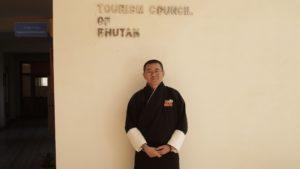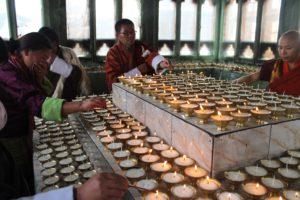
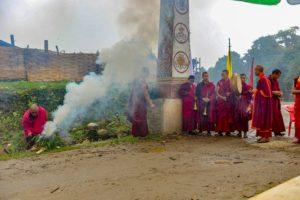 At the crack of dawn, the distant crow of a rooster forms a natural symphony with the mantra chanting from a nearby monastery, waking Dorji from his blissful dream. Rubbing his bleary eyes, he is grateful to be blessed with another brand new day in life. He heads to the kitchen to make himself his favorite breakfast - Akha, Suja, and Azey. Akha is a dough made from roasted whole wheat flour. Suja is a tea made by churning tea with butter and salt instead of sugar and milk. Azey is a spicy green salad. The salad can be whipped up with any leafy greens, but the most common ingredients are tomatoes, coriander, ginger, chilly and cucumber. A must ingredient is some dose of fresh or fermented cottage cheese.
At the crack of dawn, the distant crow of a rooster forms a natural symphony with the mantra chanting from a nearby monastery, waking Dorji from his blissful dream. Rubbing his bleary eyes, he is grateful to be blessed with another brand new day in life. He heads to the kitchen to make himself his favorite breakfast - Akha, Suja, and Azey. Akha is a dough made from roasted whole wheat flour. Suja is a tea made by churning tea with butter and salt instead of sugar and milk. Azey is a spicy green salad. The salad can be whipped up with any leafy greens, but the most common ingredients are tomatoes, coriander, ginger, chilly and cucumber. A must ingredient is some dose of fresh or fermented cottage cheese.
Over the horizon, the sun rises with a golden glow, signaling a gorgeous day ahead. Dorji decides to step out and enjoy the splendor of the day. He puts on his knee-length national dress - . Looking at the mirror, he is comfortable and confident in the national dress. The national dress must be worn in all formal and official occasions, including offices and schools. In fact, the ubiquitous sight of Bhutanese in these traditional dresses makes Bhutan unique from the rest of the world.
The air is crisp and filled with the smell of incense. With a camera in hand, Dorji ambles along the neighborhood in the rays of the rising sun. At a turn of a corner, He is distracted by the crying of a baby from a neighbor's house. The flurry of preparations in the house suggests that there is an ongoing ritual for a newborn.
In Bhutan, three days after the birth of the child, a purification ritual will be held in the house to cleanse the surrounding in welcoming the newborn. Relatives and friends will visit the mother and the newborn after the ritual. Two other common practices are the naming of the newborn and profiling (horoscope) of the newborn. These can be done at any time after the purification ritual. The horoscope profiling reveals the information about the newborn's past life, next life, what rituals and actions need to be done to ward off possible illness and bad luck in the person's life. This horoscope profile can be very specific as it can sometimes predicts how the person meets his demise later in life.
While strolling along a bustling street, Dorji runs into a young man whom he has not seen in years. They make their way into a teahouse for a chat. The young man has graduated from a university for almost two years but still has no luck at landing a decent job. Instinctively, Dorji puts a concerned look on his face. The rising youth unemployment is one of the major challenges that the nation faces. While the overall unemployment rate at 3.4 % is not alarming, but youth unemployment at 15.7 % is. One of the reasons is the mismatch between jobs and skills.
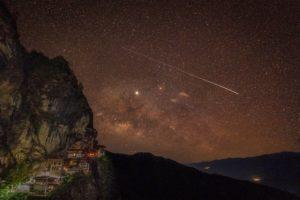
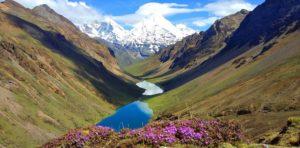
The sight opens the floodgate to his childhood memories. One of his favorite childhood games is rolling a ring made from castaway iron rods from construction sites. He used to play games using marbles, stones, sticks, and handkerchiefs as a toddler.
He remembers fondly how mealtime used to be a big event of every day, with everyone including the guests sitting in a circle on the floor. The foods would be placed in front of the matriarch of the household, usually the mother of the house. The mother would serve food for everyone, starting from the eldest member of the family and the guest.
He is so caught up in his thoughts, without noticing, he is already walking into a bustling local market. A group of western tourists gathers around a stall selling local products and souvenirs. All of them steal a look at souvenirs made in a shape of penis. They murmur and grin at each other. Nobody utters a word for fear of causing any unnecessary faux pas.
The scene is so funny that Dorji is struggling very hard to stifle a laughter. He decides to step forward and enlighten them with a little fact, in hopes to break the awkwardness.
"Do not doubt what you are seeing, it is what you think it is, A PENIS."
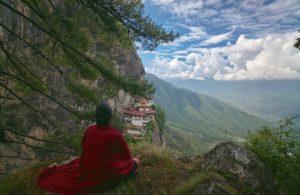
One of them asks Dorji where he can purchase a pack of cigarettes. Dorji shakes his head while telling him that cigarette is prohibited in Bhutan. Tourists, however, are allowed to bring in 200 cigarettes for personal consumption, which will be subjected to 200% import duty. Smoking is prohibited in public places and absolutely a BIG NO at temples or religious sites. Aside from the health hazards, smoking is considered a sin in Bhutanese society.
As famously quoted by Dalai Lama, "Share your knowledge. It is a way to achieve immortality". He leaves the group with a fuller heart. He hopes they enjoy Bhutan and go back with a rejuvenated mind and soul. The presence of tourists is a good sign for tourism, but with that come the challenges such as the litter management and the increasingly onslaught of consumer goods.
He continues towards a row of timber houses and nods at the people chewing betel nut and betel leaf with lime. Chewing betel nut is common in Bhutan. The chronic users will have their teeth stained with red along with a very unpleasant mouth odor. Certified tour guides are not allowed to chew betel nut while on duty.
He thoroughly enjoys his day out. As the sun moves westward, he figures a short trek up the hill to Wangditse temple might be a perfect way to end the perfect day. The route up to the temple is surrounded by lush greenery and serenity. Looking at the well-preserved mother nature, Dorji takes pride in his country being the only carbon-negative country in the world.
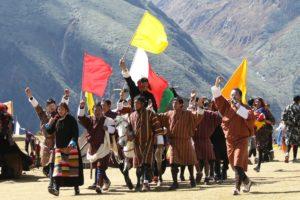
A light fume of smoke drifts from the cremation pyre. The childbirth ritual scene he witnessed in the morning is still vivid in his mind. He slips into a melancholy mood, dwelling on the thoughts about birth and death.
Bhutanese believes in the continuity of life. Death is viewed as a passage to the next life.With the last remnants of sunlight fading over the horizon, the sky is painted with magnificent hues of orange. Descending from the hill, he takes delight in a day well spent. Like his fellow Bhutanese, he finds happiness in everyday life. As a faithful civil servant and a law-abiding citizen, he feels happy when he knows he is serving his country, people, and The King to the best of his ability and integrity. At a personal level, he feels happy when he knows he is contributing to the happiness of his family.
A day of exploration surely makes him love his country even more. Bhutan is a country that exudes beauty in every aspect. As a Director of General of Director General of Tourism Council of Bhutan, he vows to continue preserve the pristine nature and unique culture of his nation, making it the most exclusive destination in the world.
